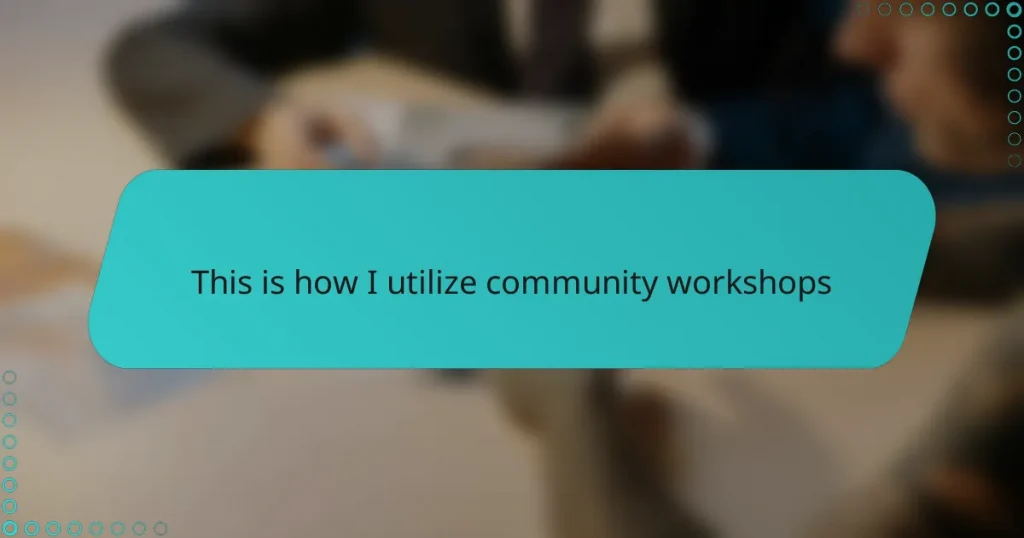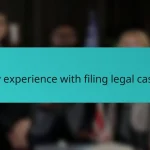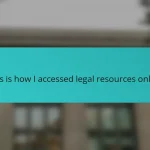Key takeaways
- Legal advocacy is about empowering others by simplifying complex legal concepts and fostering empathy through storytelling.
- Community workshops create a safe environment that encourages open dialogue, enabling participants to understand their rights and seek help confidently.
- Setting clear goals and tailoring workshop content to participants’ needs enhances engagement and ensures meaningful outcomes.
- Active participant involvement, such as sharing personal experiences and role-playing, transforms knowledge into practical understanding and builds trust within the group.
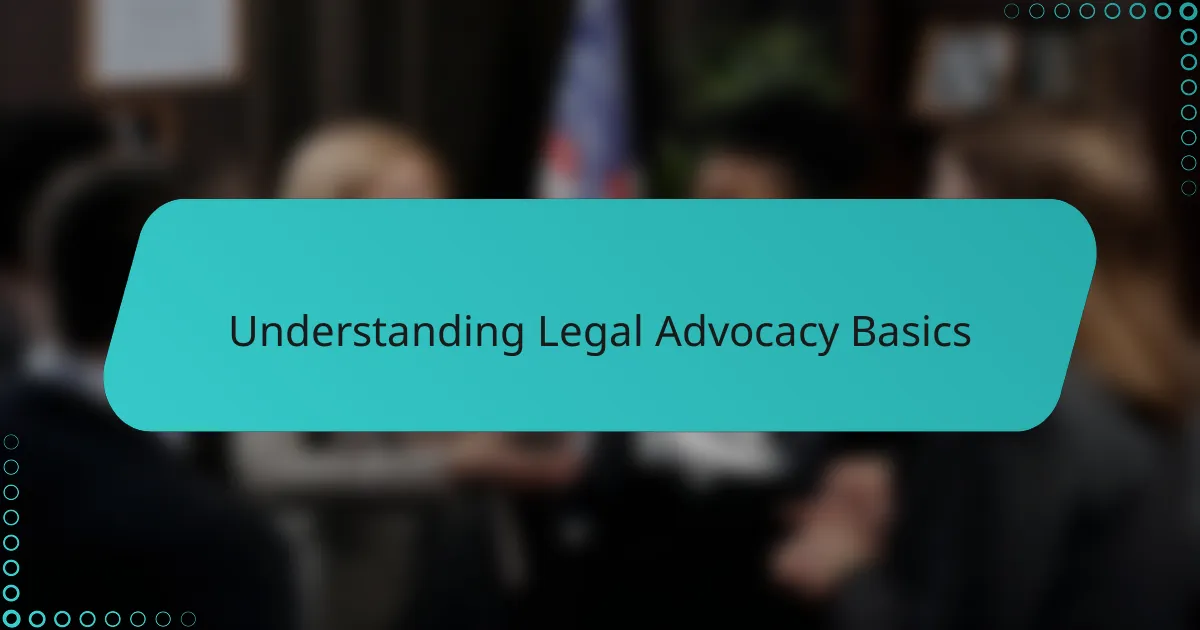
Understanding Legal Advocacy Basics
Legal advocacy, in its simplest form, is about standing up for others when they can’t do it themselves. I remember my first community workshop where someone shared how legal support changed their life—it struck me just how powerful this role can be. Have you ever felt the urge to speak up but didn’t know where to start? That’s often where legal advocacy steps in.
At its core, legal advocacy involves understanding laws well enough to navigate complex systems and offer clear guidance. From experience, I know that breaking down complicated legal jargon into everyday language is essential. It’s not just about knowing the law, but making it accessible and relatable to those who need it most.
What often surprises me is how much empathy plays into legal advocacy. It’s not a detached legal process; it’s about connecting with people’s stories and struggles. When I facilitate workshops, I make sure to emphasize that advocacy is as much about listening as it is about action. Have you ever noticed how powerful a patient ear can be in legal battles? I have, and it makes all the difference.
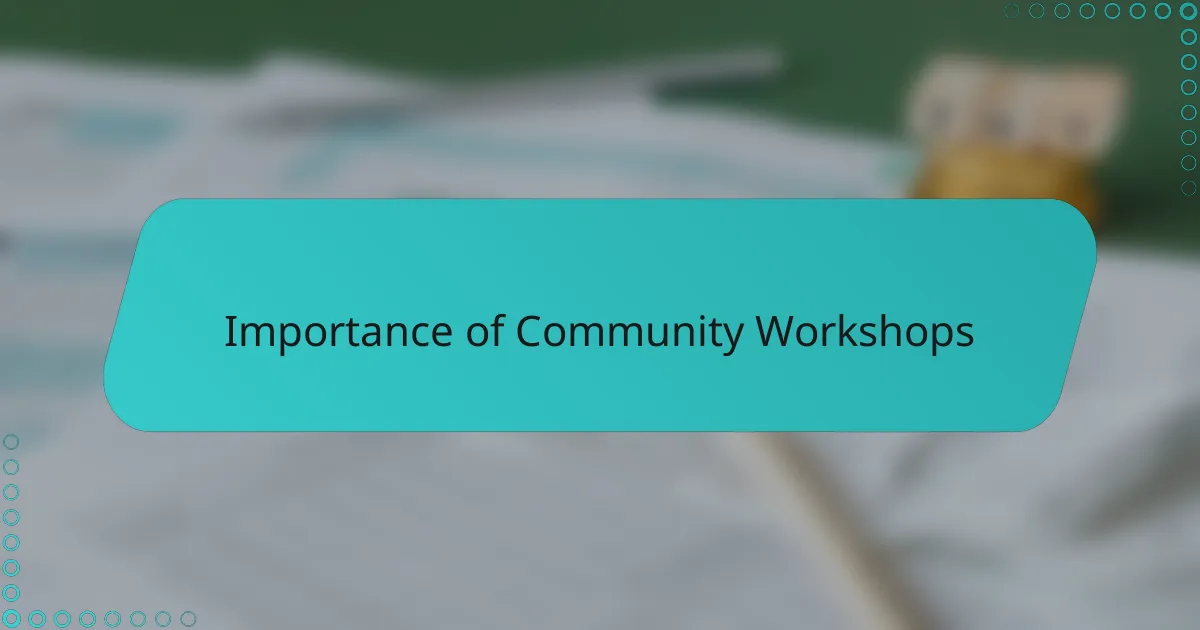
Importance of Community Workshops
Community workshops have been a game-changer in my journey as a legal advocate. They create a space where people feel safe to share their fears and questions, turning uncertainty into empowerment. I recall one workshop where a participant’s eyes lit up after understanding their rights—it reminded me why these gatherings matter so deeply.
What makes these workshops truly important is their ability to demystify the legal system. Many folks hesitate to seek help because the law seems like an impenetrable wall. Through these sessions, I see firsthand how breaking complex ideas into simple terms can open doors and inspire confidence.
Have you ever wondered why knowledge feels so powerful? In my experience, community workshops do more than educate—they build connection and trust. That sense of shared understanding is what fuels real change, one conversation at a time.
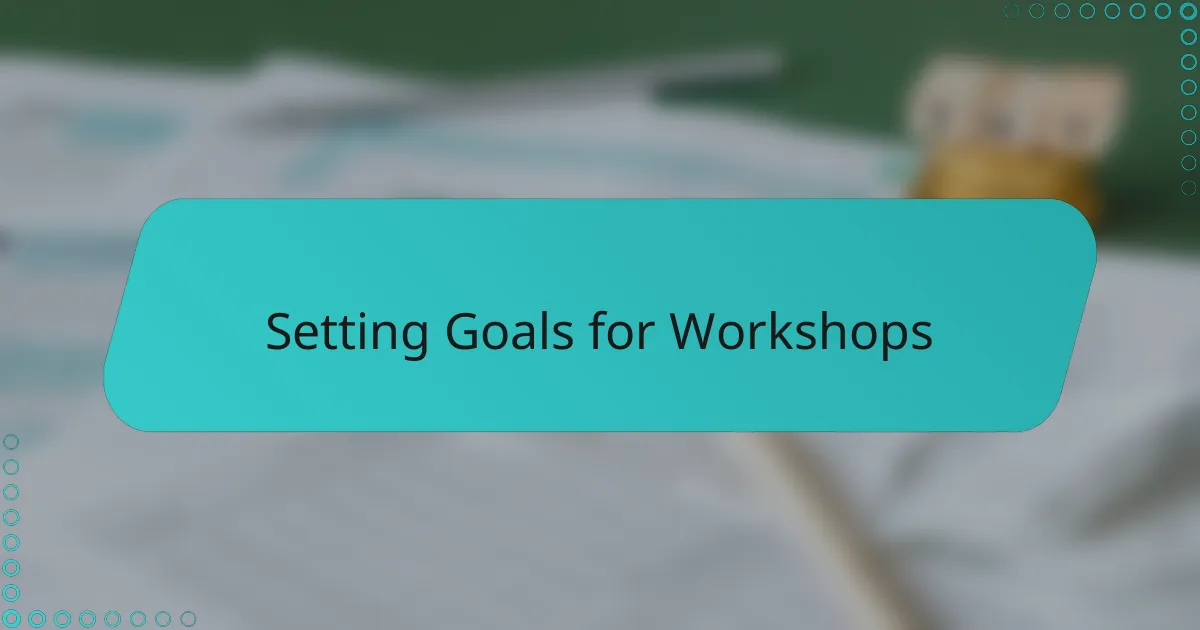
Setting Goals for Workshops
Setting clear goals for community workshops has always been my compass in guiding the sessions toward meaningful outcomes. I ask myself: What do I want participants to walk away with? Whether it’s understanding specific legal rights or feeling confident to seek help, having a focused objective shapes the entire workshop experience.
One time, I prepared a workshop without pinpointing a precise goal, and I noticed the discussion drifted without a clear direction. That taught me how crucial it is to set achievable targets—like helping attendees identify key resources or draft a basic legal question. Those small wins add up and make the effort worthwhile.
Do you ever wonder how to balance what the community needs with what’s realistic in one session? I do, and I find it’s about listening closely before setting goals. Each workshop is unique, so adjusting objectives based on participants’ backgrounds and concerns ensures the time we spend together is impactful and respectful.
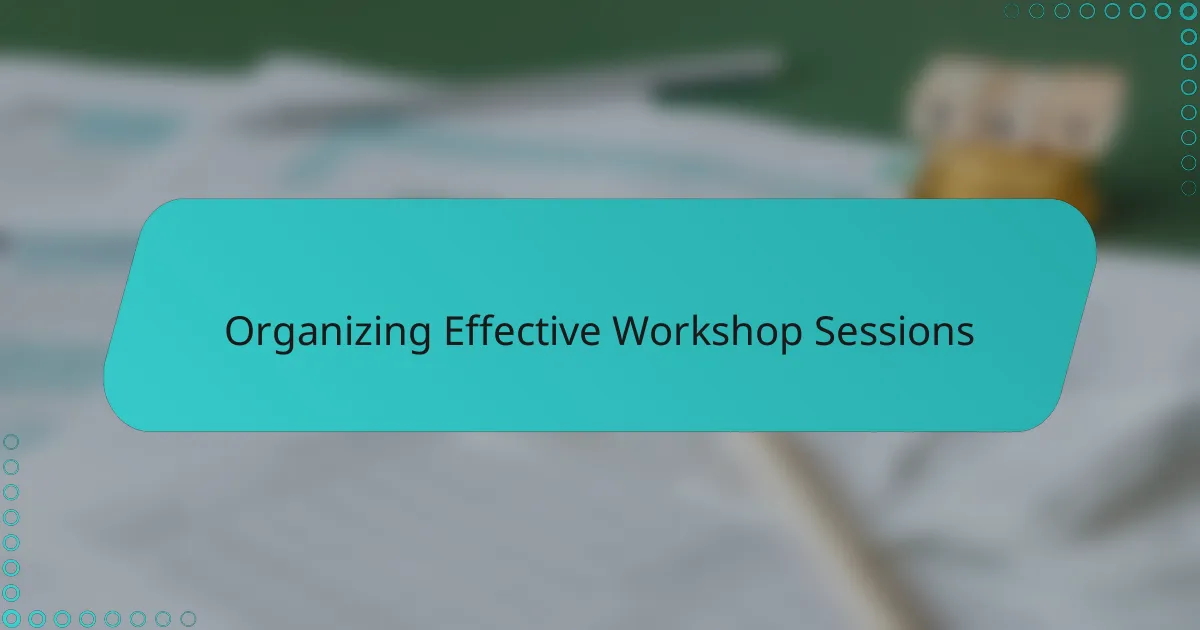
Organizing Effective Workshop Sessions
When I organize workshop sessions, I always start by creating a welcoming space—both physically and emotionally. Have you noticed how a friendly environment makes people more open to sharing their concerns? From my experience, simple things like arranging seats in a circle or offering refreshments can break down barriers before we even dive into legal topics.
Timing and pacing have also become key elements in my planning. I once tried to cover too much in a single session and saw participants’ eyes glaze over—that was a clear sign I needed to slow down and let ideas sink in. Now, I build in moments for questions and reflection, which not only helps retention but also affirms that everyone’s voice matters.
Another thing I focus on is tailoring each session to the community’s unique needs. I remember a workshop with a group facing housing challenges, so I shifted the agenda on the fly to address tenant rights more thoroughly. Have you ever adapted on the spot? It’s rewarding, and those adjustments often lead to the most meaningful breakthroughs.
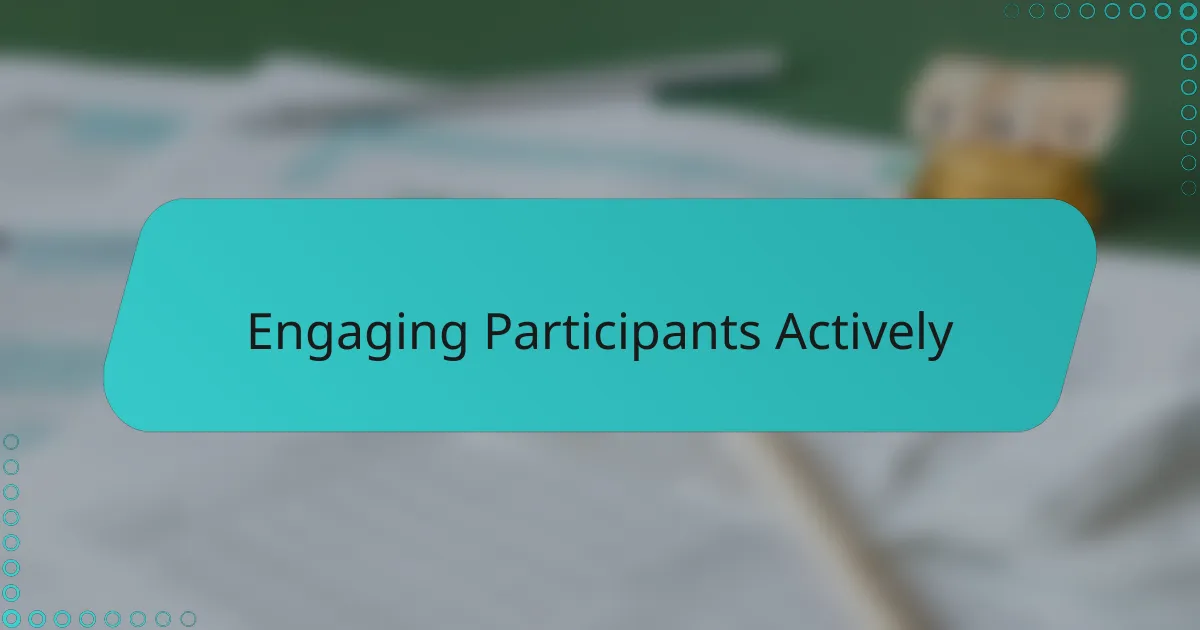
Engaging Participants Actively
Engaging participants actively has been one of the most rewarding parts of facilitating community workshops. I often encourage attendees to share their own experiences or ask questions early on—it sets the tone that their voice matters. Have you ever noticed how a room comes alive when people feel invited to participate rather than just listen?
Sometimes, I use role-playing exercises to bring legal scenarios to life. Watching someone step into an advocate’s shoes, even briefly, sparks a deeper understanding and empathy that lectures alone can’t achieve. It’s moments like these when I realize that active involvement transforms knowledge into confidence.
What truly keeps participants engaged for me is creating space for dialogue, not just presentations. When attendees start building on each other’s ideas and concerns, the energy shifts from passive reception to collaborative problem-solving. Isn’t that the heart of community advocacy—working together toward change?
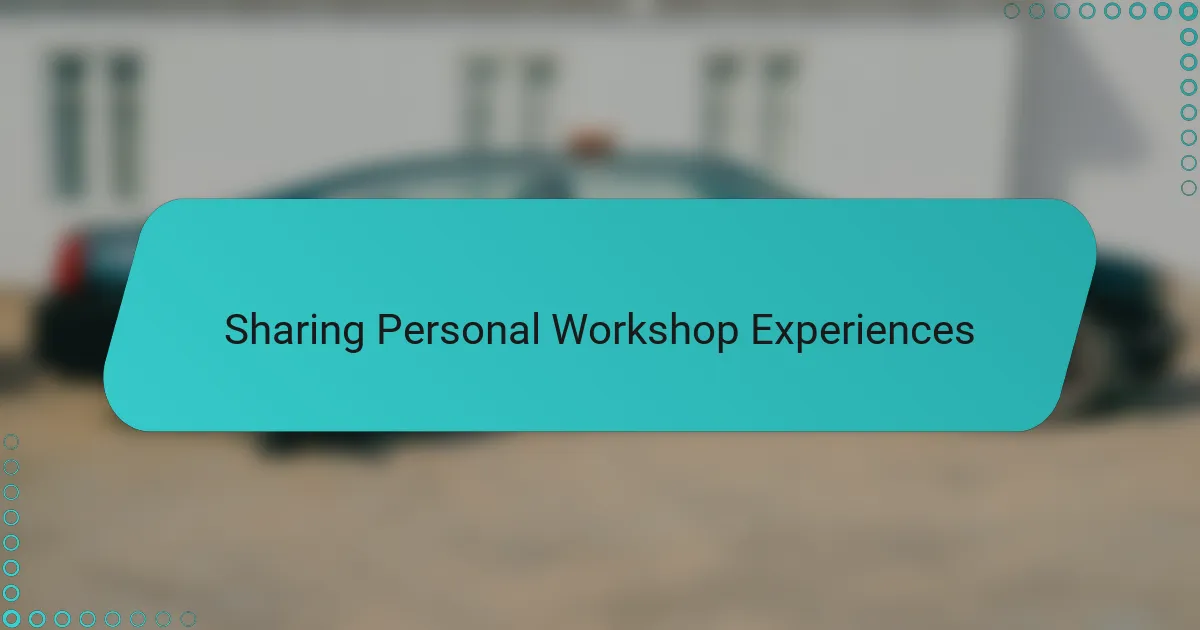
Sharing Personal Workshop Experiences
I often find that sharing my own experiences during workshops helps break down walls between me and the participants. Once, I recounted a moment when I felt overwhelmed by legal jargon early in my advocacy work, and suddenly, several people nodded in relief—it was clear they had felt the same confusion. Have you ever shared something that made others feel less alone? That connection is powerful.
There was a time a participant hesitated to speak up until I shared a story about my first advocacy challenge, which encouraged them to open up about their situation. Seeing that shift in the room reminded me how personal stories can bridge gaps and foster trust. It’s not just about lecturing; it’s about creating a space where everyone feels safe enough to share.
Sometimes, I wonder why these personal moments stick with me long after the workshop ends. I think it’s because they transform abstract legal concepts into real human experiences. When I share, it’s not just about facts—it’s about hope, courage, and the belief that change is possible for everyone involved.
